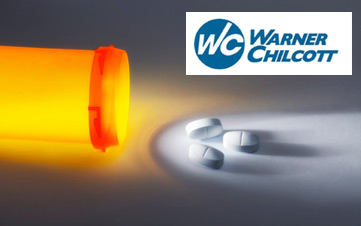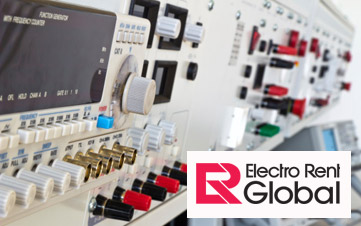9 Enticing Dividend-Paying Stock Picks
Angling for more yield from your portfolio?


Profit and prosper with the best of Kiplinger's advice on investing, taxes, retirement, personal finance and much more. Delivered daily. Enter your email in the box and click Sign Me Up.
You are now subscribed
Your newsletter sign-up was successful
Want to add more newsletters?

Delivered daily
Kiplinger Today
Profit and prosper with the best of Kiplinger's advice on investing, taxes, retirement, personal finance and much more delivered daily. Smart money moves start here.

Sent five days a week
Kiplinger A Step Ahead
Get practical help to make better financial decisions in your everyday life, from spending to savings on top deals.

Delivered daily
Kiplinger Closing Bell
Get today's biggest financial and investing headlines delivered to your inbox every day the U.S. stock market is open.

Sent twice a week
Kiplinger Adviser Intel
Financial pros across the country share best practices and fresh tactics to preserve and grow your wealth.

Delivered weekly
Kiplinger Tax Tips
Trim your federal and state tax bills with practical tax-planning and tax-cutting strategies.

Sent twice a week
Kiplinger Retirement Tips
Your twice-a-week guide to planning and enjoying a financially secure and richly rewarding retirement

Sent bimonthly.
Kiplinger Adviser Angle
Insights for advisers, wealth managers and other financial professionals.

Sent twice a week
Kiplinger Investing Weekly
Your twice-a-week roundup of promising stocks, funds, companies and industries you should consider, ones you should avoid, and why.

Sent weekly for six weeks
Kiplinger Invest for Retirement
Your step-by-step six-part series on how to invest for retirement, from devising a successful strategy to exactly which investments to choose.
Angling for more yield from your portfolio? Who isn't in this low-rate environment? Sure, there's risk with stocks in a volatile market, but even if share prices bounce around, the income from dividend-paying stocks is fairly secure.
You don't always need to turn to giants such as AT&T and Altria to earn a decent, reliable yield. Two places to consider beyond these old standbys are first-time dividend payers and small companies. We've identified nine stocks worth watching.
Let's start with first-time dividend payers. Initiating a dividend can mean that a company is going gangbusters and is generating so much extra cash that it makes sense to toss some back to shareholders. But, says Hugh Johnson, an Albany, N.Y., money manager, a dividend launch is not always good news. It could mean that growth has slowed and management has no better idea of what to do with the money than pay it out. Naturally, we selected first-time dividend payersthat are likely to keep hitting it out of the park.
Turning to small companies paying big dividends, these picks can benefit from being too tiny to lure the whale-sized institutions that dominate Wall Street. And that can spell opportunity for individual investors, who aren't buying shares in multimillion-dollar blocks.
*All stock prices and related numbers are as of market close on June 25.

Apple
- 52 week high: $705.07
- 52 week low: $385.10
- Price-earnings ratio: 8
- Yield: 3.0%
- Last year, Apple announced that it would return $45 billion in cash to shareholders through dividends and stock buybacks over three years. Just $10 billion had been returned to shareholders as of mid February. But during the October-December quarter, the Cupertino, Cal., company generated another $23 billion of excess cash, prompting some big shareholders to press Apple to give back more.
The iconic tech giant was flying high until last fall, when investors began to fret about intensifying competition in smart phones. The stock really hit the skids in January, when Apple (symbol AAPL) reported flat earnings for the October-December quarter. The stock, which peaked at $702 in September, now goes for $402.63.
But many pros think the swoon has gone too far. Trefis, a Boston firm that analyzes the value of companies on a piece-by-piece basis, thinks Apple stock is worth $626. The company has $137 billion in cash and securities ($146 per share) on its balance sheet.

KAR Auction Services
- 52 week high: $24.37
- 52 week low: $14.10
- Price-earnings ratio: 19
- Yield: 3.4%
A dearth of new-car sales over the past few years hurt KAR Auction Services (KAR), the Carmel, Ind., parent of Adesa. But the auto-auction business appears to be revving up as consumers return to dealerships, rental-car firms update their fleets, and leases generated over the past three years expire. Barrington Research analyst Gary Prestopino expects KAR to start rolling in 2014, with high-single-digit sales growth and double-digit earnings gains.
KAR is a star when it comes to generating the excess cash flow that makes dividend payments to shareholders possible. In 2012, the company threw off $237 million more cash than it needed to maintain the business, and it expects to produce more than $260 million in excess cash in 2013. KAR's dividend payments cost about $104 million annually. The company started paying dividends in December at a quarterly rate of 19 cents per share.

SAIC
- 52 week high: $15.60
- 52 week low: $10.69
- Price-earnings ratio: 12
- Yield: 3.7%
There's good news and bad news at SAIC Inc. (SAI). The bad news is that the cyber-security company's biggest customer, the U.S. Department of Defense, is cutting back, and no one is sure how badly that might wound any government contractor. The good news is that President Obama specifically mentioned the need for greater cyber security in his State of the Union address, which may mean that SAIC will suffer less than other defense contractors. The McLean, Va., company has also announced plans to split in two, with one piece focusing on the slow-growing government-contracting business and the other concentrating on providing cyber-security services to private industry, a faster-growing business.
James Friedman, an analyst with Susquehanna Financial Group, is cautiously optimistic about the divided company's prospects, but he isn't recommending the stock until he sees details on how assets and debts will be divvied up. He says the two pieces are worth $13 a share combined, a buck above the stock's recent price. SAIC initiated a quarterly dividend of 12 cents per share a year ago, so even if you don't get much appreciation, you get a generous yield.

Warner Chilcott
- 52 week high: $20.75
- 52 week low: $10.85
- Price-earnings ratio: 6
- Yield: 2.6%
- Warner Chilcott (WCRX) is a deeply discounted drug maker with turnaround potential, says analyst Randall Stanicky, of Canaccord Genuity. At $13, the stock sells for a paltry 4 times estimated 2013 earnings, mainly because investors are concerned that sales of generic drugs will eat away at Warner's profits. Generics are already nipping at its business. Sales dropped 5% in the fourth quarter, largely because the Ireland-based company lost patent protection in Europe and Canada for an osteoporosis treatment.
As with other drug makers, Warner's profits will largely hinge on how well it's able to introduce new drugs and protect its business when other patents expire over the next decade. Without an acquisition to expand the company's drug portfolio, earnings are likely to decline, says Stanicky. The right deal, he says, could turn Warner into a growth company, though when that might happen is anyone's guess.
To keep shareholders happy in the meantime, Warner started paying a 25-cent-per-share semiannual dividend in December. Thanks to that dividend, which accounts for less than 15% of the excess cash Warner generates yearly, investors are being paid to wait until the company's growth prospects improve.

MTS Systems
- 52 week high: $62.91
- 52 week low: $37.27
- Price-earnings ratio: 18
- Yield: 2.1%
Working with makers of everything from windmills to snowmobiles, MTS Systems (MTSC) helps its customers test prototypes of new products for reliability, stability and durability. The 47-year-old Eden Prairie, Minn., engineering company generates only about one-third of its revenues in the U.S.; nearly 40% of its sales come from fast-growing manufacturing centers in Asia. Although the global economy is improving, growth is likely to remain restrained for some time. That's good news for MTS, says Sidoti & Co. analyst John Franzreb. When competition is fierce, businesses feel pressured to develop more new products. To get these products to market quickly, they rely on the testing expertise of companies such as MTS.
MTS has a strong balance sheet, with virtually no outstanding debt and cash reserves of nearly $80 million, or 10% of the stock's market value. The current annual dividend rate of $1.20 per share has tripled since 2006.

Electro Rent
- 52 week high: $18.73
- 52 week low:Price-earnings ratio: 16
- Yield: 4.7%
Insiders own about 30% of the shares of Electro Rent (ELRC). That can be a problem when insiders care mostly about enriching themselves at the expense of other shareholders, but in this case it's a plus, says Sidoti analyst David Gold. "They manage the company tightly, like it's a family business," he says. "They're watching every penny." As a result, Electro Rent, which buys and leases out high-cost technology and testing gear for the aerospace, defense and telecommunications industries, has no debt and an unused $25 million credit line. This enviable balance sheet enabled Electro Rent to acquire its third-largest rival during the 2007-09 recession, and it puts the Van Nuys, Cal., firm in a position to grow far more briskly in the future, says Gold.
Although Gold doesn't expect profits to rise in the current fiscal year, which ends in May, he projects that both sales and earnings will grow by double-digit percentages in 2014 and beyond. Electro Rent pays a quarterly dividend of 20 cents a share.

First PacTrust Bancorp
- 52 week high: $13.98
- 52 week low: $10.08
- Price-earnings ratio: 11
- Yield: 3.6%
- First PacTrust Bancorp (BANC) has transformed itself over the past five years, says D.A. Davidson & Co. analyst Gary Tenner. The parent of Pacific Trust Bank started as a credit union, then converted to a savings and loan, and now has turned itself into a commercial bank. The credit union and S&L businesses borrowed money by offering relatively high-yielding certificates of deposit and lent out money at relatively low rates. That kept the company's profit margins slim.
Now the Irvine, Cal.-based bank is going after potentially more-lucrative commercial loans and shifting its deposit base into short-term checking accounts, which pay low or no interest. First PacTrust is also on an acquisition spree that could double its size in the next two years, says Tenner. Meanwhile, analysts expect earnings to grow at an average of about 15% annually over the next few years. The company pays a quarterly dividend of 12 cents a share.

G&K Services
- 52 week high: $50.02
- 52 week low: $29.30
- Price-earnings ratio: 16
- Yield: 1.7%
Like Electro Rent, G&K Services (GK) is in the rental business. But instead of leasing high-tech gear, G&K leases (and launders) uniforms for hotels, grocery stores, fast-food outfits, manufacturers, health care concerns and construction firms. It's not a sexy business, but it has proved resilient even in tough economic times, says Kevin Steinke, of Barrington Research. And now that the economy is picking up a little steam, there's a good chance that the Minnetonka, Minn., company could, too.
G&K executives, who paid off debt and conserved cash through the recession, are now so confident about the company's prospects, says Jeff Huebschen, director of investor relations, that they hiked the dividend rate by 50% last June to 19.5 cents a share per quarter. G&K's dividend has increased fivefold in the past six years. Steinke thinks the stock will appreciate in line with the company's improved prospects.

TICC Capital
- 52 week high: $11.09
- 52 week low: $8.84
- Price-earnings ratio: 6
- Yield: 12.4%
If you run a small technology firm and need to borrow some scratch — maybe $25 million or so — you might turn to TICC Capital (TICC), a business-development company based in Greenwich, Conn. And if you happen to be an investor looking for some serious income, you might turn to TICC's stock, which at a price of $11 boasts a stunning yield. Run by a group of former investment bankers and small-company-stock investors, including Charles Royce, founder of the Royce funds, TICC borrows money by issuing debt and then seeks to profit by lending the money at higher interest rates to middle-tier technology companies or by taking equity positions in them.
This is a risky business, however. For starters, because the companies TICC invests in are young and small, they stand a much greater chance of failing than, say, IBM. Moreover, because TICC invests with borrowed money, it is at the mercy of the credit markets, which, as we saw only a few years ago, can freeze up during a financial crisis. During the last recession, TICC slashed its dividend by 44%, and its stock price, which had exceeded $17 in 2007, fell below $3 in early 2009. The company has been hiking dividends steadily since the recession ended, from 15 cents per quarter in early 2010 to a current rate of 29 cents.
With the economy expanding slowly, the risks of another credit crisis and a rise in defaults are declining. John Hecht, an analyst with Stephens Inc., thinks TICC's dividend is safe and that as the company deploys more of the capital it borrowed last year, profits will rise and lead to even richer payouts for shareholders.

Profit and prosper with the best of Kiplinger's advice on investing, taxes, retirement, personal finance and much more. Delivered daily. Enter your email in the box and click Sign Me Up.

-
 How Much It Costs to Host a Super Bowl Party in 2026
How Much It Costs to Host a Super Bowl Party in 2026Hosting a Super Bowl party in 2026 could cost you. Here's a breakdown of food, drink and entertainment costs — plus ways to save.
-
 3 Reasons to Use a 5-Year CD As You Approach Retirement
3 Reasons to Use a 5-Year CD As You Approach RetirementA five-year CD can help you reach other milestones as you approach retirement.
-
 Your Adult Kids Are Doing Fine. Is It Time To Spend Some of Their Inheritance?
Your Adult Kids Are Doing Fine. Is It Time To Spend Some of Their Inheritance?If your kids are successful, do they need an inheritance? Ask yourself these four questions before passing down another dollar.
-
 What Fed Rate Cuts Mean For Fixed-Income Investors
What Fed Rate Cuts Mean For Fixed-Income InvestorsThe Fed's rate-cutting campaign has the fixed-income market set for an encore of Q4 2024.
-
 The Most Tax-Friendly States for Investing in 2025 (Hint: There Are Two)
The Most Tax-Friendly States for Investing in 2025 (Hint: There Are Two)State Taxes Living in one of these places could lower your 2025 investment taxes — especially if you invest in real estate.
-
 The Final Countdown for Retirees with Investment Income
The Final Countdown for Retirees with Investment IncomeRetirement Tax Don’t assume Social Security withholding is enough. Some retirement income may require a quarterly estimated tax payment by the September 15 deadline.
-
 The 24 Cheapest Places To Retire in the US
The 24 Cheapest Places To Retire in the USWhen you're trying to balance a fixed income with an enjoyable retirement, the cost of living is a crucial factor to consider. Is your city the best?
-
 Dividends Are in a Rut
Dividends Are in a RutDividends may be going through a rough patch, but income investors should exercise patience.
-
 Municipal Bonds Stand Firm
Municipal Bonds Stand FirmIf you have the cash to invest, municipal bonds are a worthy alternative to CDs or Treasuries – even as they stare down credit-market Armageddon.
-
 High Yields From High-Rate Lenders
High Yields From High-Rate LendersInvestors seeking out high yields can find them in high-rate lenders, non-bank lenders and a few financial REITs.
-
 Time to Consider Foreign Bonds
Time to Consider Foreign BondsIn 2023, foreign bonds deserve a place on the fringes of a total-return-oriented fixed-income portfolio.
